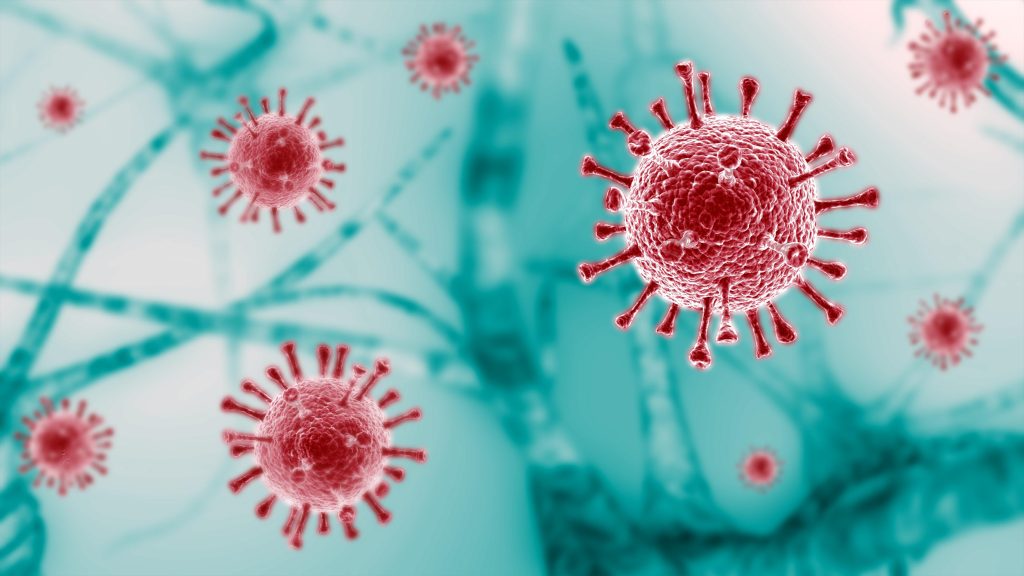CAN CETYPYRIDINIUM CHLORIDE (CPC) REDUCE THE INFECTION CAPACITY OF COVID-19?
Almost a year has passed since the Covid-19 virus turned our lives upside down. In this last year, we have gone through different stages from initial skepticism to fear and uncertainty in the hardest period. With the passage of time, fortunately, we are also reaching the stage of hope.
The main protection measures against Covid-19 are already clear to almost all of us.
The Ministry of Health and Consumption summarizes them in 4 key points:
- Frequent hand washing and wearing a mask. Avoid touching your eyes, nose, and mouth. When coughing or sneezing, cover your mouth and nose with your elbow.
- Keep at least a 1.5 m distance between people and limit contact.
- Prioritize outdoor spaces and frequently ventilate closed spaces.
- Stay home if you have symptoms or are self-isolating or quarantined.
On the other hand, studies are being carried out on different substances to check whether their possible use can curb the infection capacity of Covid-19 and, among them, is a common component in many types of mouthwash for daily use: methylpyridinium chloride (CPC).
WHAT IS THE RELATIONSHIP BETWEEN THE ORAL CAVITY AND COVID-19?
The oral cavity plays a fundamental role in Covid-19 infection.
It is one of the points through which the virus can enter our body. In the mouth, there are receptors (ACE2) that will allow the virus to anchor and multiply in that area. In fact, different studies have shown that these receptors are in greater quantity in the mouth, specifically in the salivary glands than in the lungs. Saliva droplets are therefore going to constitute a very important transmission route.
During the first 10 days of infection and in which the patient usually remains asymptomatic, the Covid-19 virus will accumulate mainly in the nasal, oral, and pharyngeal areas.
The oral viral load has been associated with the severity of Covid-19 and therefore, lowering this viral load could reduce the severity of the disease. Also, its reduction would reduce the risk of transmission to other nearby people.
HOW DOES THE CPC WORK? RESULTS OF PRECLINICAL STUDIES
The cell membrane is a fundamental element for the virus to recognize cells and infect them. Through the “spike” protein (protein S) it binds to the receptor (ACE2) as if it were a key to its lock and thus the doors of the cell are opened to the virus so that it can enter its interior and multiply.
In preclinical studies carried out by research staff from IrsiCaixa (a center promoted by the La Caixa Foundation and the Department of Health of the Generalist) in collaboration with the DENTAID Research Center. It has been shown that the membrane destabilizes in contact with the CPC so that the S protein ceases to be functional and SARS-CoV-2 is unable to infect.
In order to demonstrate this, the Covid-19 virus isolated from patients with the disease and mouthwash with CPC have been put in contact for 2 minutes and it has been observed that the virus’s capacity for infection is reduced up to 1000 times. On the other hand, the same experiment was done with a mouthwash without CPC and the virus maintained its infectivity.
For now, the antiviral effect has been demonstrated in these preclinical studies in cell cultures, so the next step will be to do it in a human trial, which will be led by the Foundation to Fight AIDS and Infectious Diseases (FLS).
WHAT PRODUCTS CONTAIN CPC IN THE PHARMACY? HOW SHOULD I USE THEM?
Mouthwashes and pastes with this ingredient were already sold in pharmacies since methylpyridinium chloride (CPC) has proven to be a powerful antiseptic. It prevents the formation of dental plaque, gum infection, as well as other problems such as halitosis.
MY RECOMMENDATION:
VITIS CPC PROTECTS MOUTHWASH:
Helps reduce dental plaque while offering active mouth protection thanks to its high concentration of methylpyridinium chloride (CPC) 0.7%.
You have to rinse and gargle to reach the most distant areas of the oral cavity, with 15 ml of mouthwash for 1 minute twice a day, in the morning and at night, after brushing. For greater effectiveness, it is recommended not to rinse with water and to avoid eating or drinking immediately after use.
VITIS CPC PROTECTS SPRAY
It contains 0.7% Methylpyridinium Chloride (CPC) together with PVP and hydroxyethyl cellulose, which are mucoadhesive polymers that form a film that helps the active ingredients remain longer on the surface of the oral mucosa.
2-3 sprays 3-4 times a day are recommended for daily care and active mouth protection.
Looking for Pharmacy Services in Brampton?
Click here to read more blogs.

